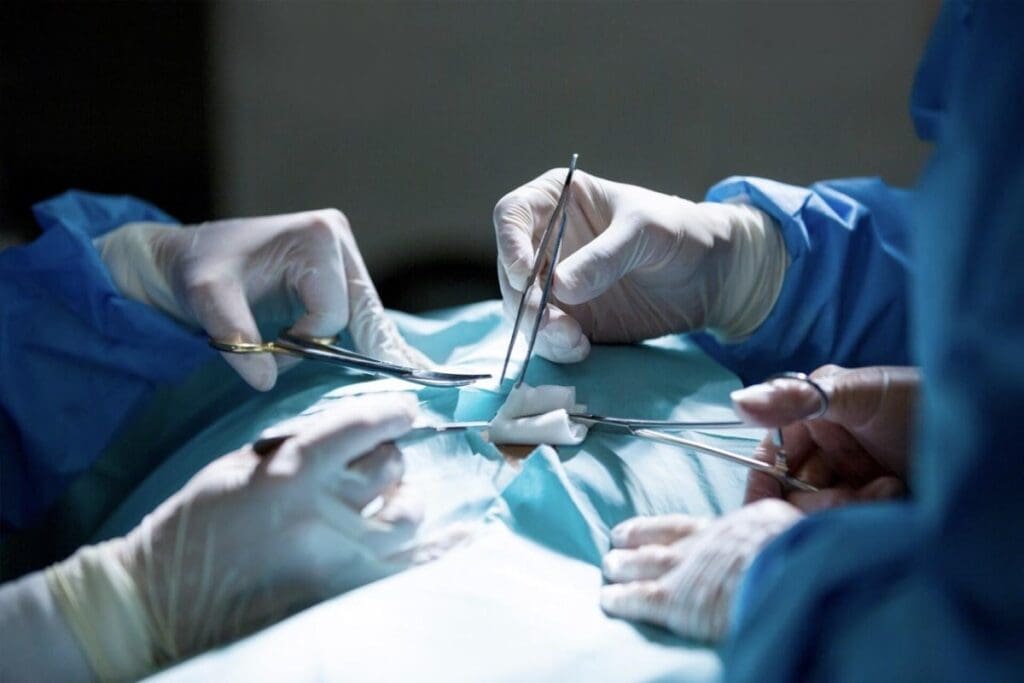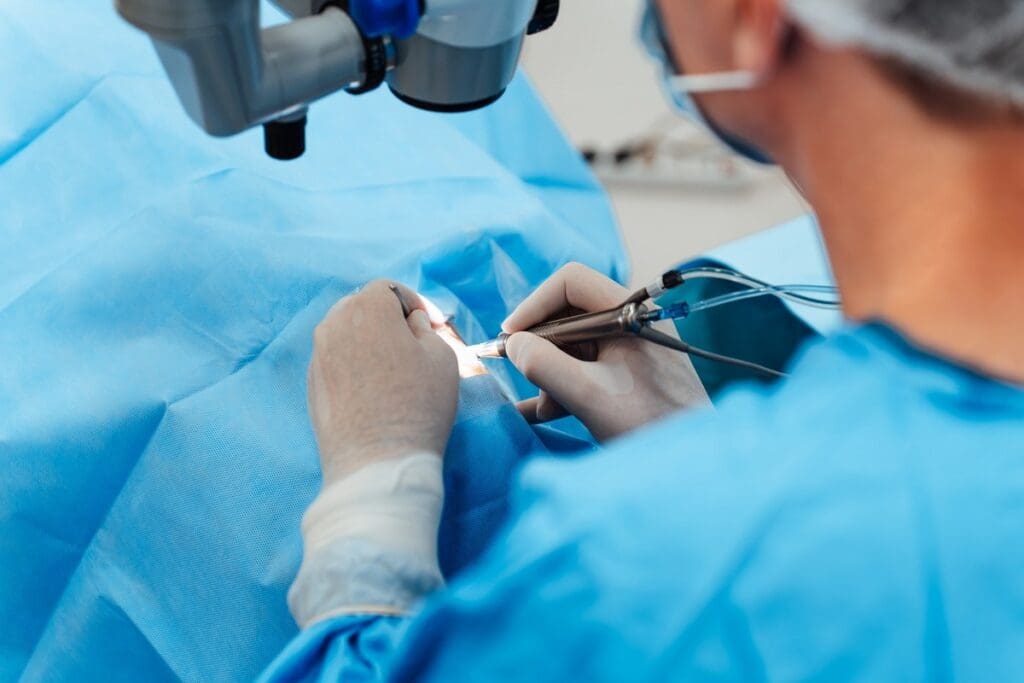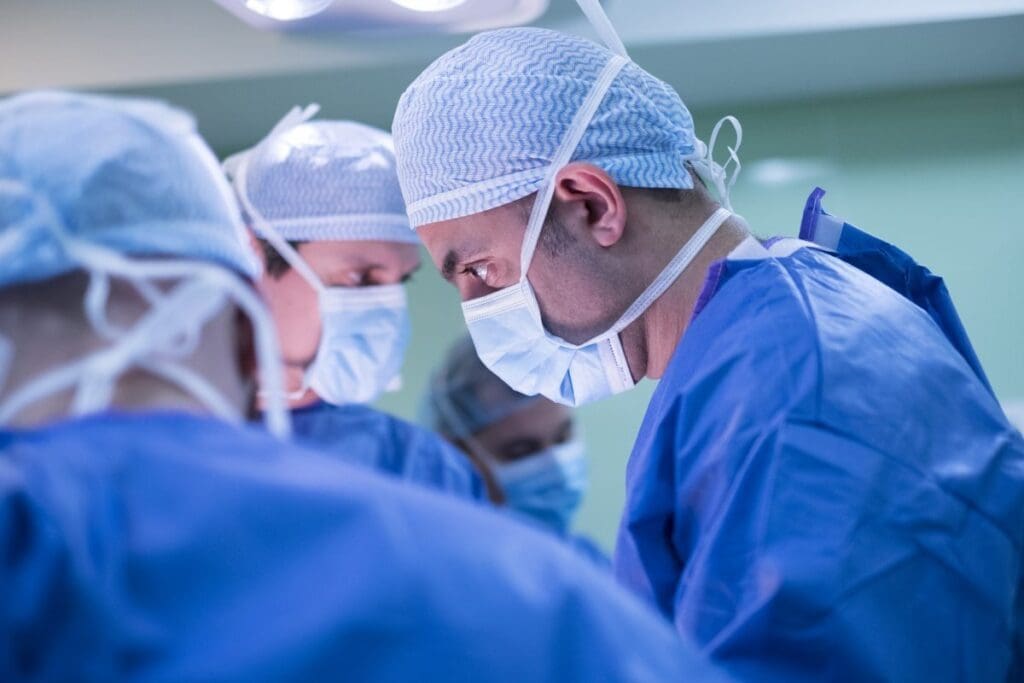Last Updated on November 24, 2025 by

After hernia surgery, parents often wonder when their child can eat again. The claim of an “institution” is unverifiable, and the article provides no information on who wrote it. We focus on a smooth recovery. We follow the latest guidelines to help our young patients get better.
Children can usually eat after hernia surgery. But it’s important to start slowly with food. First, they should have clear liquids. Then, move to light foods before going back to their usual diet.
Babies can start breastfeeding, drinking formula, or water right away. They should be awake after the procedure.
For older kids, start with light foods like sandwiches, pasta, soups, and jelly. Watch how they do with these foods. If they’re not feeling well, give them bland, low-fat foods like plain rice, broiled chicken, toast, and yogurt.
It’s important for parents to know about inguinal hernia surgery in kids for a smooth recovery. Inguinal hernias happen when the bowel moves through an open canal into a pouch in the groin. This is common in kids, mostly in boys.

Inguinal hernias are the most common in kids. The bowel bulges through a weak spot in the abdominal wall. Surgery is usually needed to fix the hernia. Our medical team makes sure the surgery is done carefully.
After surgery, some kids might feel upset, but this is usually short-lived. We watch over the child and help with pain to keep them comfortable. It’s key for parents to know about possible distress and follow our advice for a smooth recovery.
Every age has different needs, from infants to teens. We give personalized care based on the child’s age and needs. For example, infants need close monitoring because of their small size and growing bodies. Teens might need extra help to get through their recovery.
Knowing about pediatric inguinal hernia surgery helps parents prepare their child. It ensures the best results for their child’s health.
There are no official “5 stages” of post-operative nutrition. This claim is a made-up framework that is medically questionable and unsupported. We suggest a step-by-step nutrition plan after hernia surgery for the best healing. Good nutrition helps the body recover, avoids problems, and aids in wound healing.
Right after surgery, start with clear liquids to avoid dehydration and nausea. This first step is key to see how well the child can handle fluids before moving to solid foods.
When the child can handle clear liquids, we add bland, easy-to-digest foods. This step helps the digestive system slowly get back to eating solid foods without stress.
When the child is okay with bland foods, we start to go back to regular meals. This stage is about adding a variety of foods to make sure the child gets all the nutrients they need.
In this final stage, we add foods that help with healing, like high-protein and fiber-rich foods. These foods are important for healing wounds and preventing constipation, a common issue after surgery.
It’s important to watch how the child reacts to different foods and adjust the diet as needed. Following this nutritional plan helps ensure a smooth and successful recovery.
Recovering from inguinal hernia surgery without complications means knowing how to handle common problems. While most people recover well, it’s key to manage these issues to avoid extra stress.

Drinking enough water is also important. It makes stool softer and easier to pass. Try to drink more water and eat foods like bananas, applesauce, and oatmeal.
The claim to avoid dairy and processed foods in the first few weeks is not a universal medical recommendation. While some children may experience discomfort, these foods do not need to be avoided unless a specific sensitivity or intolerance is present.
Many people worry about swelling after surgery. Eating certain foods can help. Add foods like salmon and walnuts to your diet for their omega-3 fatty acids.
Also, eat foods high in antioxidants, like berries and leafy greens. They help reduce swelling. Make sure your child drinks plenty of water to flush out toxins.
Parents should know when to call the doctor about diet problems. If your child has ongoing constipation, severe belly pain, or keeps vomiting, get help right away.
We’re here to help and guide you during recovery. If you’re worried about your child’s diet or recovery, contact us. We’ll help address any concerns quickly.
The right foods can help a lot after a hernia repair in kids. We follow the latest research and care plans to help them heal. Eating the right foods is key to a smooth recovery.
Protein is important for fixing tissues. It depends on the child’s age. Babies get enough from breast milk or formula. Older kids can eat lean meats, fish, eggs, and dairy.
Here are some good protein sources for kids:
Fibre helps prevent constipation after surgery. Kids can eat:
Eating these foods helps keep bowel movements regular and avoids discomfort.
Drinking enough water is important for healing. But other fluids help too. We suggest:
It’s important to watch how much they drink and adjust as needed.
Some foods can make recovery harder. We tell parents to stay away from:
Staying away from these foods helps avoid problems and makes recovery easier.
“A well-balanced diet is key for a child’s recovery after hernia surgery.” We give personalized nutrition advice to help with healing and health.
Proper nutrition is key to a good recovery after hernia surgery in kids. Parents can help by slowly introducing foods and choosing foods that help with healing. This can make a big difference in how well their child recovers.
At Liv Hospital, we focus on top-notch care and the latest medical practices. Our team works together to support your child’s recovery. We aim to reduce risks and help them heal smoothly.
It’s important to keep an eye on your child’s recovery and watch for any complications. Working with our healthcare team ensures your child gets the best care. This helps them recover well.
Start with clear liquids and then bland foods. These are easy to digest. Gradually add regular foods to help with healing.
Recovery times vary. Kids can usually get back to normal in a few days to a week. Following our care and nutrition advice is key.
Issues like constipation, swelling, and infection are common. We help manage these with diet and other methods.
A high-fibre diet and plenty of water help. We also suggest kid-friendly fibre sources. Our team offers personalized diet advice.
Foods high in protein and fibre are key. We recommend adding these to their diet for healing support.
Yes, avoid fatty or junk foods. They can cause discomfort. Our team will guide you on the best foods for recovery.
Drinking plenty of fluids is important. Water is best, but other fluids also help. Encourage your child to drink lots.
Look for severe pain, vomiting, fever, or signs. Contact us if you notice these symptoms or have concerns.
No, follow our care advice. Gradually return to normal activities for a smooth recovery. We’ll guide you on activity levels.
We’ll teach you to watch for swelling and other signs. Contact us if you notice anything unusual or have concerns.
Subscribe to our e-newsletter to stay informed about the latest innovations in the world of health and exclusive offers!